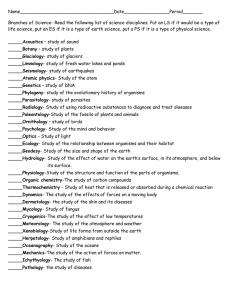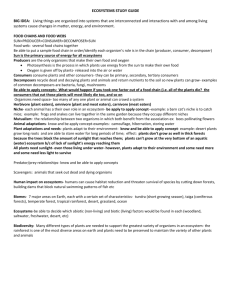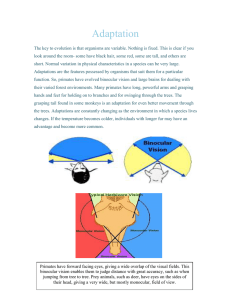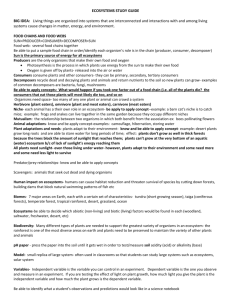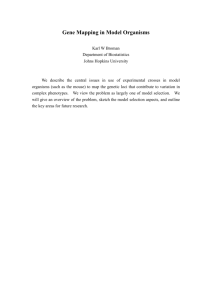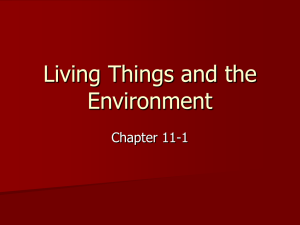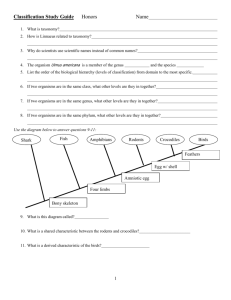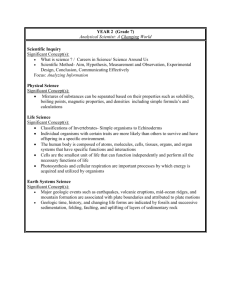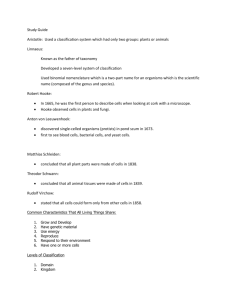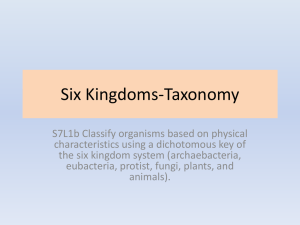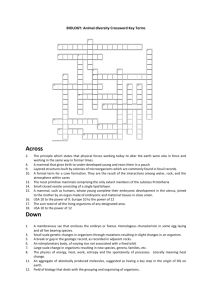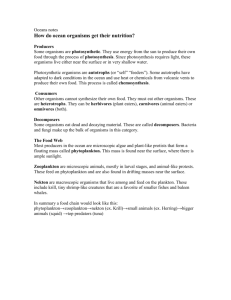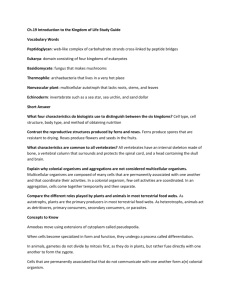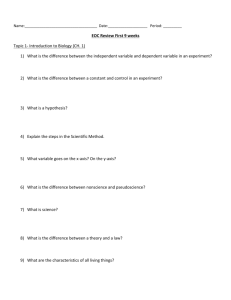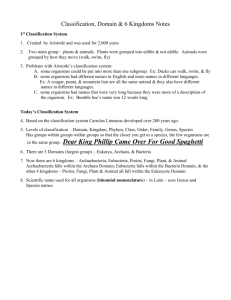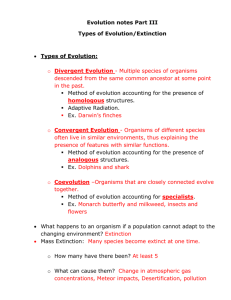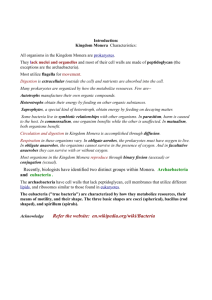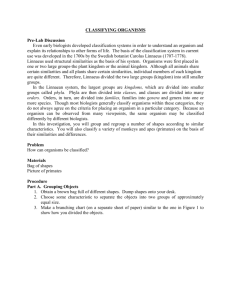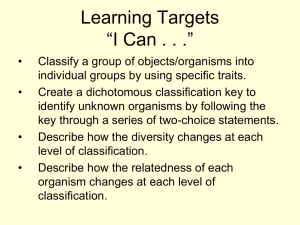Biology EOC Teacher Key- Pages 33-48 Domain
advertisement
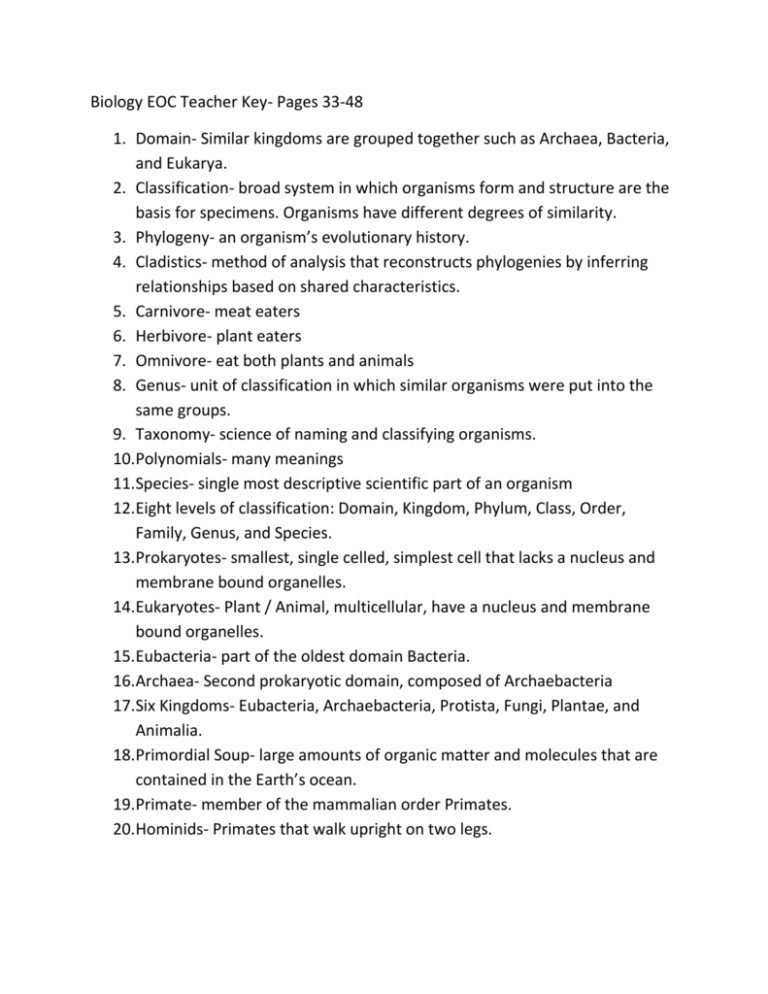
Biology EOC Teacher Key- Pages 33-48 1. Domain- Similar kingdoms are grouped together such as Archaea, Bacteria, and Eukarya. 2. Classification- broad system in which organisms form and structure are the basis for specimens. Organisms have different degrees of similarity. 3. Phylogeny- an organism’s evolutionary history. 4. Cladistics- method of analysis that reconstructs phylogenies by inferring relationships based on shared characteristics. 5. Carnivore- meat eaters 6. Herbivore- plant eaters 7. Omnivore- eat both plants and animals 8. Genus- unit of classification in which similar organisms were put into the same groups. 9. Taxonomy- science of naming and classifying organisms. 10.Polynomials- many meanings 11.Species- single most descriptive scientific part of an organism 12.Eight levels of classification: Domain, Kingdom, Phylum, Class, Order, Family, Genus, and Species. 13.Prokaryotes- smallest, single celled, simplest cell that lacks a nucleus and membrane bound organelles. 14.Eukaryotes- Plant / Animal, multicellular, have a nucleus and membrane bound organelles. 15.Eubacteria- part of the oldest domain Bacteria. 16.Archaea- Second prokaryotic domain, composed of Archaebacteria 17.Six Kingdoms- Eubacteria, Archaebacteria, Protista, Fungi, Plantae, and Animalia. 18.Primordial Soup- large amounts of organic matter and molecules that are contained in the Earth’s ocean. 19.Primate- member of the mammalian order Primates. 20.Hominids- Primates that walk upright on two legs.
